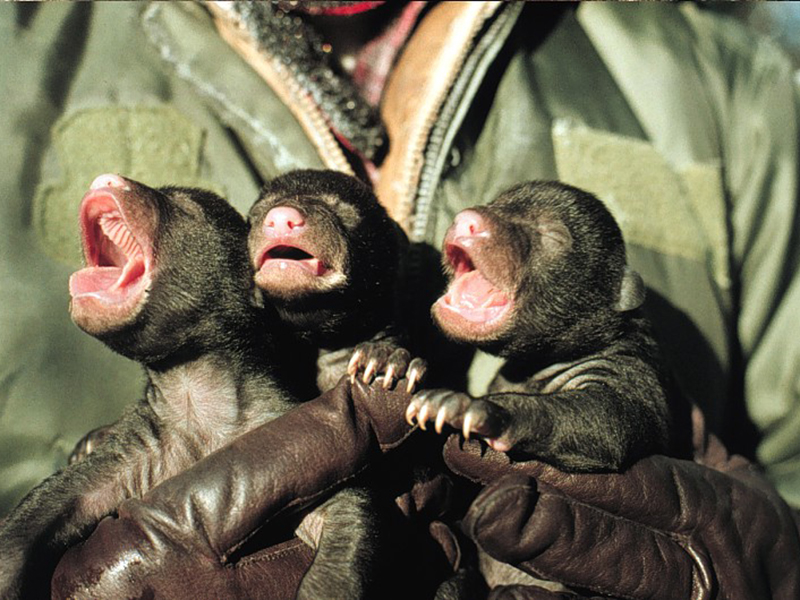The shadows are long, the air is cool and the trees have given up their last leaves. It is almost time for the Appalachia Georgia black bears to go into den for their long winter nap. Our bears generally den from late December through April. We often call it hibernation, but black bears are not true hibernators like ground squirrels or groundhogs. They go into a “torpor” or light sleep and can easily be awakened, especially if they sense danger.
Black bears den at different times throughout north America because of three factors, and they are the availability of food, the photoperiod and temperature.
First and foremost is the availability of food. Food drives their life and behavior whether they are awake or asleep. When God’s naturally provided food disappears, then their body tells them to go to sleep until spring.
A hard mast failure and human-provided food will cause bears to not go into hibernation. The failure to get enough food to store fat forces a starving bear to continue to forage. Conversely, the availability of man-provided food, i.e., trash, wildlife and birdfeeders and pet food, will keep their bodies from triggering the need to hibernate.
The photoperiod, or the amount of daylight, is different depending on the longitude of the location. The further north, the less daylight duration, and the further south, the more daylight duration.
Lastly, to a lesser degree (no pun intended), the temperature. Bears, like all mammals, have to burn calories to generate internal body heat to survive. The colder it is, the more calories they have to burn, which leads us to the choosing of dens.
Dens can be practically anywhere. They will likely be isolated, quiet and protected. They can be in the ground, in trees as small as 24 inches in diameter, a rock outcropping or your unsecure crawlspace. If they can get their head into it, their body will fit in it.
A bear’s physiology is amazing during hibernation. They do not eat, drink, urinate or defecate, and their body recycles its waste. They burn up to 4,000 calories per day and lose 23 to 30 percent of their body fat. Lactating females will lose up to 45 percent of their body fat. Their heart rate drops to 8-10 beats per minute and body temperature in their head and torso decreases about 10 degrees. They lose their pads during the latter part of hibernation and old injuries or wounds will heal. Their bodies will not lose muscle or bone mass.
Pregnant sows will give birth while in den within a week or two of January 22. Newborn cubs are born blind with fine fur and weighing 0.5 to 1 pounds. The mother and cubs will be the last to emerge from their dens in the spring.
Hibernation for black bears is a time of regeneration, healing and continuing the cycle of life. They are amazing creatures! Humans just need to do their part to keep as nature intends for it to be.
By Gerald Hodge, Founder, Appalachia Georgia Friends of the Bears

